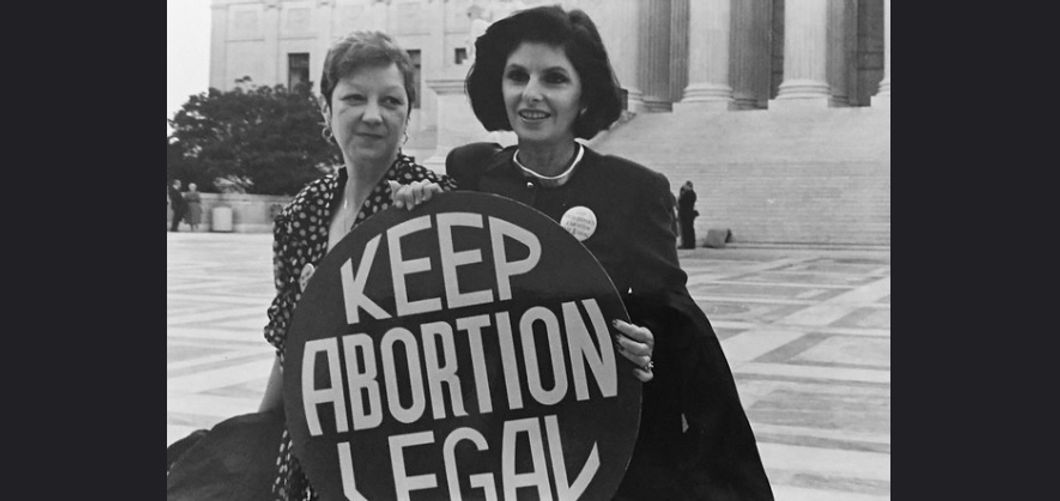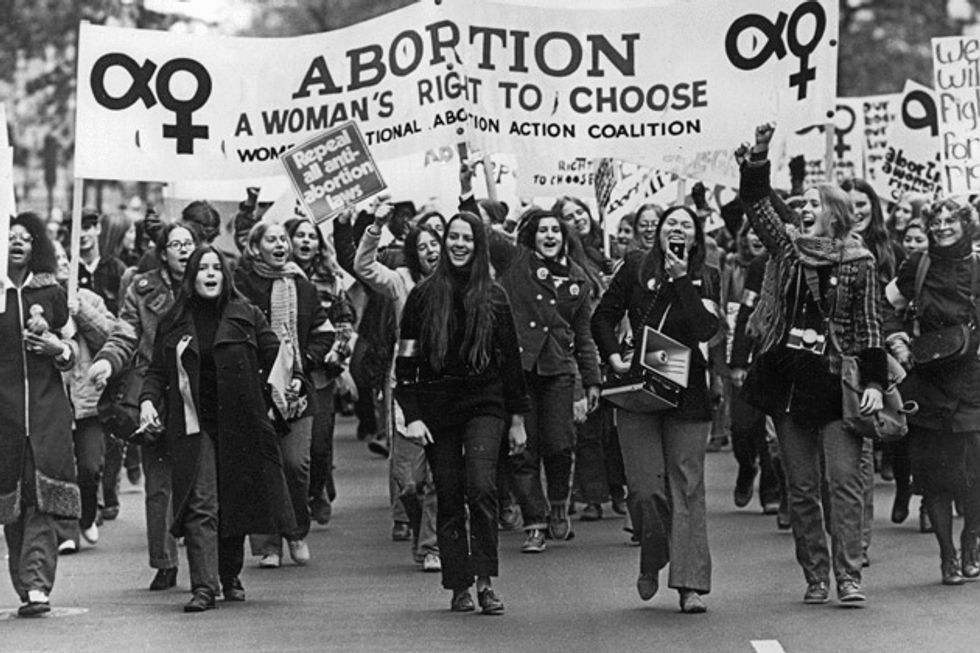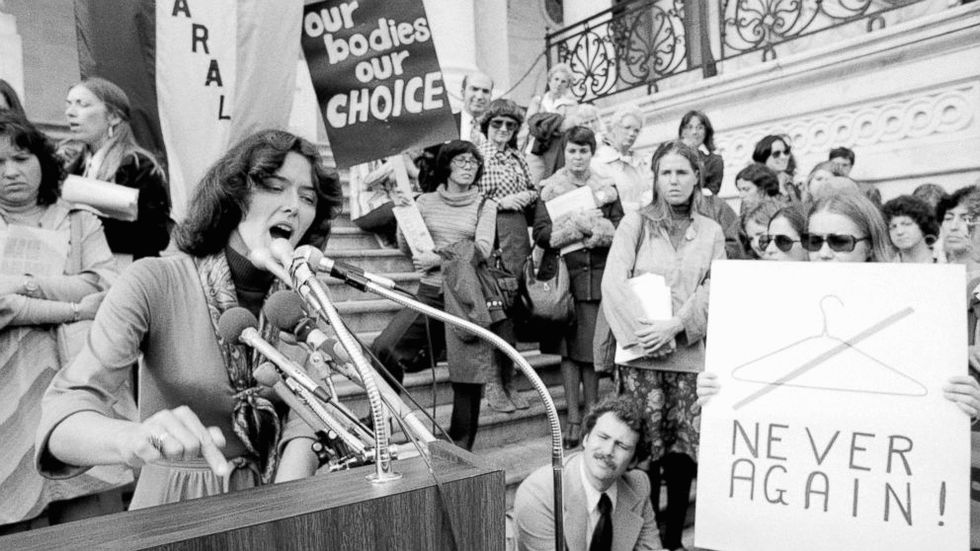Listen, the more educated you are, the more equipped you are to argue with people over the internet.
So here it goes.
Roe v. Wade was the landmark decision that paved the federal opinion of abortion since 1973. This decision ruled that the Due Process clause of the Fourteenth Amendment of the United States Constitution, the right to privacy, protects a woman's right to choose an abortion without government interference. (Which is why anti-abortion legislation won't make it past the Supreme Court.) It was also decided that this right is not absolute, so the Supreme Court ruled that balances needed to be put in place to protect the government's interests in providing women's healthcare and protecting prenatal life. So the court ruled that the states should be granted regulations based on the trimesters of a woman's pregnancy:
- During the first trimester, governments could not prohibit abortions at all.
- During the second, governments could require reasonable health regulations.
- During the third, abortions could be prohibited entirely as long as the laws provided exceptions for cases involving severe health risks to the mother.
- Firstly, compelling to state interest.
- Secondly, that it is narrowly tailored to achieving the state's compelling interest.
- And thirdly, that the law uses the lease restrictive means to achieve its purpose.
This served as the primary ruling on abortion practices until 1992 when the Roe v. Wade ruling was first challenged by Planned Parenthood v. Casey. This case resulted in the court reaffirming Roe's holding that a woman's right to abort a nonviable fetus is constitutionally protected. However, this case did abolish the trimester scale and replaced it with a standard based on fetal viability—which is defined as the "potential to be able to live outside the mother's womb, albeit with artificial aid."
The court determined this to be at 23-24 weeks pregnant. This case also overturned the requirement that government regulations on abortion be subjected to the strict scrutiny standard, allowing states to govern abortion practices as they see fit. In its place, the court established the undue burden standard, which prohibits legislature that proves too burdensome of one's fundamental rights. These abortion standards are the ones that are upheld today.
Roe v. Wade has scarcely been challenged since, until the recent abortion legislation in states like Alabama, Georgia and Ohio.
Here's where my two cents come in. These new abortion laws are clearly against what the Supreme Court has already decided as "fundamental rights" according to the constitution. Therefore, these states are intentionally crafting these laws to gain the attention of the Supreme Court in the hopes of challenging the original Roe v. Wade decision. Though it's not likely the court will change their stance on abortion, states like Alabama, Georgia, and Ohio could prove successful in restricting abortion laws like in Planned Parenthood v. Casey. All in all, these states creating crazy abortion laws are doing so just for shock value.








 The minimum wage is not a living wage.
StableDiffusion
The minimum wage is not a living wage.
StableDiffusion
 influential nations
StableDiffusion
influential nations
StableDiffusion







